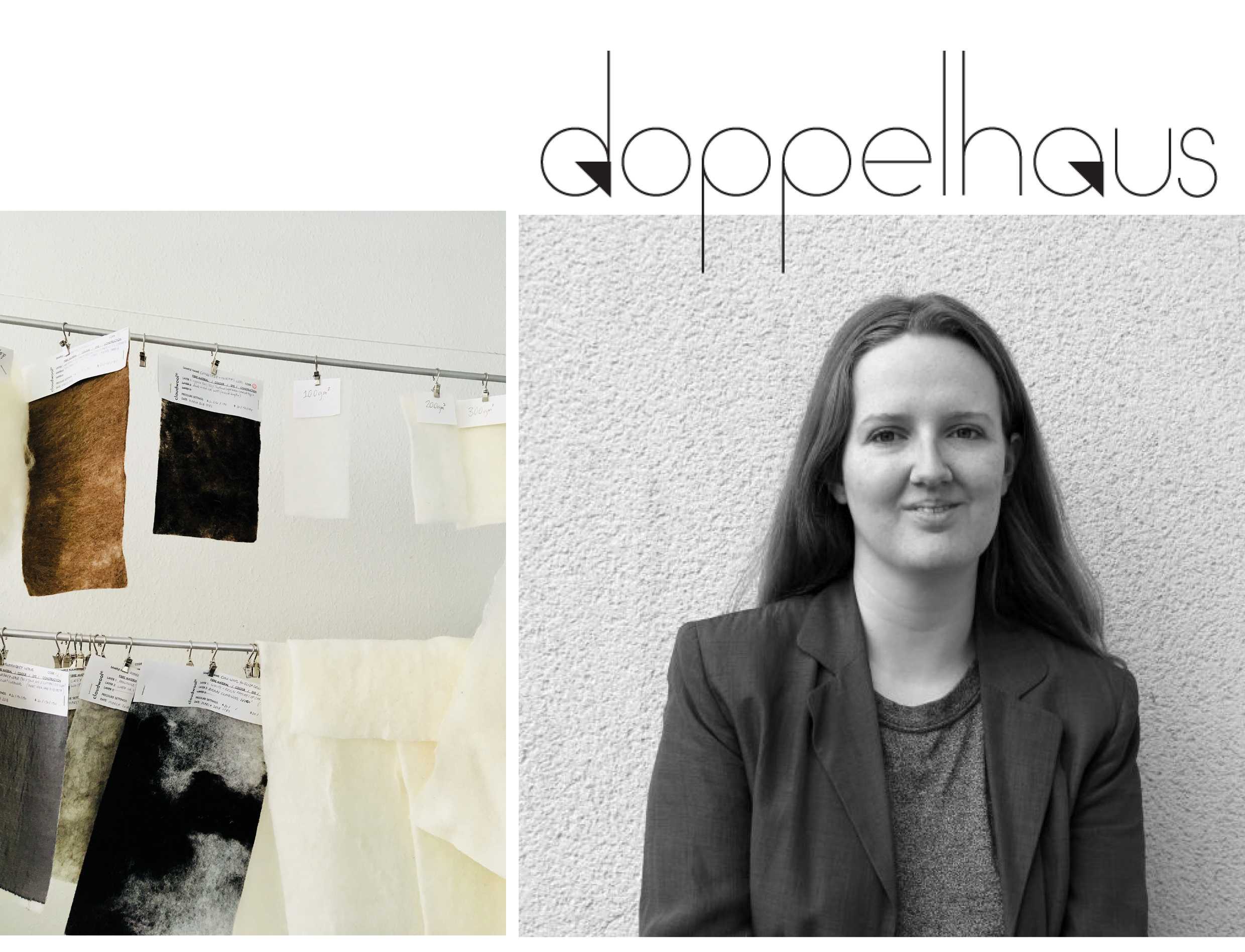Yolanda Leask and Martin Brambley are still on course for success and continuing with the development of their innovative material Cloudwool. And so we are very glad to report on the progress of the young company DOPPELHAUS, who have hit many milestones in 2017 and 2018.
For example, being selected to show at Munich Fabric Start Sustainable Innovations where they exhibited in both Winter 2017 and 2018.
[rev_slider alias="Doppelhaus"]
DesignFarmBerlin: What exactly is the aim of Munich Fabric Start Sustainable Innovations?
Yolanda Leask: It's more of an exhibition or a gallery format. The exhibitors' present samples of their materials on podiums, so you don't always get to meet everyone who is interested in your product. Many people there are fashion designers looking for inspiration, so they often just take a quick look around and photograph the information.
DFB: What did the show mean to you?
YL: The exhibition was great to get to know some companies in the German market, such as Tchibo, who were very interested in the history and production of local wool. We were able to get direct feedback on what interests who and, above all, what their criteria are: how much they are willing to spend, technical specifications etc.
DFB: What contacts could you make?
YL: The first time we were able to talk to Tchibo and several other small fashion labels. The second time (2018) there was an exciting contact with the young production company „Nordwolle“, who have set up a local production chain for jackets made of North German wool. We were definitely on the same page, trying to reinvigorate local textile production, and there is potential for future collaborations.
DFB: Speaking of cooperation, in 2017, Doppelhaus collaborated with the Norwegian fashion design label Soster Studio , and the collection made it into Italian Vogue, with a photo shoot including images of the wrap skirt made of Hessian Cloudwool, Doppelhaus's innovative material. How did this collaboration come about?
YL: Soster Studio saw our samples at the Future Fabrics Expo in London and wrote to us.
DFB: What made Doppelhaus and Soster Studio a good match?
YL: We are both new labels that focus on sustainability - not just as an added interest, but as the central principle behind our designs.
DFB: How do you see textile development in the fashion scene? And what does that mean for your product?
YL: Sustainability is taking an ever-larger place in the fashion industry and interest is growing - it used to be a tiny niche in fashion, where only very specialized shops would sell ecological textiles, and hardly anything was available in the wholesale trade. I think the issue has gradually become a priority in recent years, and now there is no looking back. Our business model is based on this – we want to be able to compete with the cheapest wool fabrics so that even the larger fashion chains can afford a sustainable material that is produced domestically with regional wool.
DFB: Thank you for your time. We are happy to be able to report about you again.
YL: Thank you.
